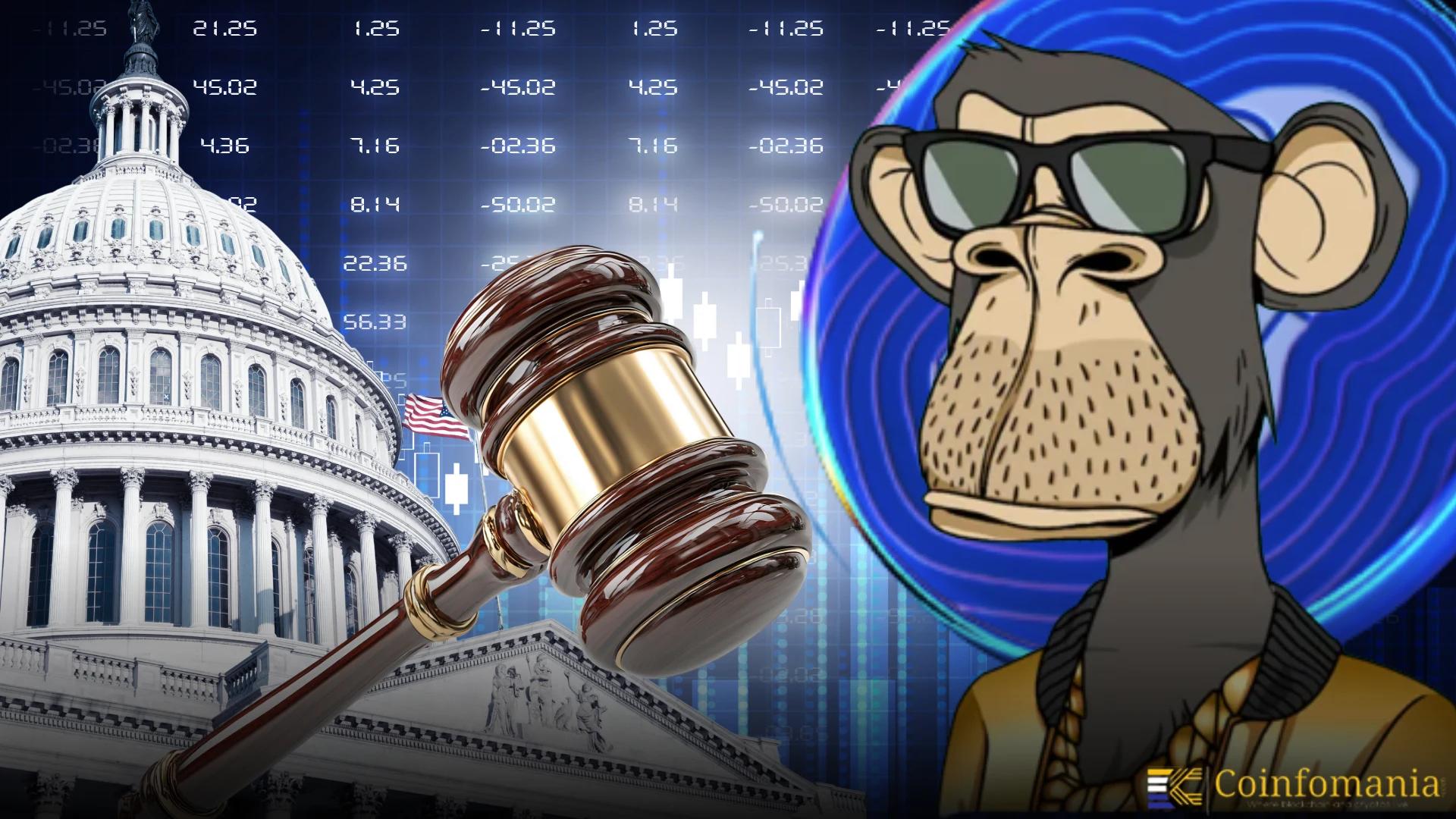Bored Ape NFTs Ruling Signals Legal Clarity for NFT Creators
Bored Ape NFTs ruling: U.S. judge says BAYC NFTs and ApeCoin are not securities, giving clarity for NFT creators and investors.

Quick Take
Summary is AI generated, newsroom reviewed.
U.S. judge rules Bored Ape NFTs and ApeCoin are not securities.
Investors’ claims did not meet the Howey Test criteria.
The ruling boosts confidence in NFT and crypto markets.
Market activity increased, and innovation in NFTs may grow
A U.S. judge has ruled that Bored Ape Yacht Club (BAYC) NFTs and ApeCoin ($APE) are not securities. According to CoinGape, this decision is a huge win for NFT creators and investors. It also gives more clarity on how digital assets are treated under U.S. law.
🚨 JUST IN: 🇺🇸 U.S. Judge rules Bored Ape Yacht Club NFTs & $APE are NOT securities 🦍 pic.twitter.com/hzKVTyaUNJ
— CoinGape (@CoinGapeMedia) October 4, 2025
The Case Against Yuga Labs
The case started when some investors sued Yuga Labs, the company behind BAYC. They claimed that the NFTs and ApeCoin should have been registered as securities. The investors argued that these assets were like investment contracts, like stocks or bonds.
The court disagreed and the judge said the investors did not prove that the NFTs or ApeCoin met the Howey Test. The Howey Test is used to decide if an asset counts as a security. The judge said the assets did not depend on a shared business or promise profits mostly from someone else’s work.
What This Means for NFTs and Crypto
This ruling is important for the NFT and crypto markets. By saying that BAYC NFTs and ApeCoin are collectibles and not securities, the court gives some legal clarity. Other NFT creators may now feel safe for developing and selling their projects.
However, experts say that this decision only applies to this case. It does not automatically protect every NFT or crypto project from being thought of as security. Each asset could be judged differently if taken to court.
ApeCoin and NFT Market Bounce Back
After the news, ApeCoin’s price went up a little. Investors were happy because there is less worry about the strict regulations. The broader NFT market also showed more activity and collectors and traders came back after the ruling.
Social media and crypto forums were full of discussions. Many users saw this ruling as proof that NFTs are getting more recognized as real, legal digital assets. Others reminded traders that risks are still there, and prices can change quickly.
Future of NFT Regulation
While this ruling is a win for Yuga Labs, NFT regulation is still uncertain. The U.S. Securities and Exchange Commission (SEC) is watching the market pretty closely. Future cases could still change how digital assets are regulated.
Investors and NFT creators need to keep paying more attention because the legal landscape is changing fast. For now, the court’s decision shows that NFTs like BAYC can exist without being treated like traditional securities. This could lead to more innovation in the NFT space.
The Impact on NFTs and Crypto
The Bored Ape NFTs ruling is a big milestone for NFTs. It shows that digital assets are becoming a more recognized part of finance. Investors, creators and collectors now have more confidence, at least for some projects. The ruling also shows that U.S. courts may take a practical approach when looking at NFTs and crypto.
Follow us on Google News
Get the latest crypto insights and updates.


